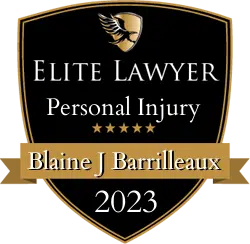Hit and run accidents may be some of the worst kinds of accidents you can suffer. Any accident that isn’t your fault is a betrayal and leaves you feeling angry and confused. A hit and run is even worse, however, because it means that the person who inflicted harm on you isn’t willing to step up and take responsibility for what they’ve done. They’d rather run and hide.
Unfortunately, your ability to track down the responsible person and collect the compensation you deserve for the injuries you’ve suffered depends largely on what you do, to move things forward after the accident. Learn the steps you need to take after a hit and run accident, to help ensure you can seek compensation for your damages, and how a car wreck lawyer can help.
What to Do After a Hit and Run
There are a number of steps you need to take after a hit and run accident. Before anything else, call first responders so that you can get the medical attention you need. You won’t be at your best—you’ll be angry, disoriented, confused and possibly in pain. Still, it’s important to try and keep a clear head.
Write down everything you can remember about the car that struck you. The make, model, color, anything from the license plate you can remember (even just the state) can be helpful. Try and remember where the driver was situated relative to your position. Take any photos you can of the scene. This can help to back up your version of the events and help to jog your memory.
When you see your doctor, try to get a long-term prognosis which will project the kind of rehabilitation and ongoing medical care and treatment you’ll need. Then, report the incident to your insurance company. When you tell them what happened, never editorialize. Keep it simple, factual and to the point. Telling them, “I should’ve seen it coming,” paints you as having responsibility. Just tell them what happened and nothing more.
Uninsured Motorist Coverage
Uninsured motorist coverage is in place specifically to take care of circumstances like hit and run accidents. If you have this kind of coverage, you can use it the same as if you were struck by a motorist who had no insurance. It will pay for your medical treatment and ongoing care, your lost wages, and other damages that you’ve suffered.
If you have this kind of coverage, your insurance company can fill you in on the details. If you don’t have this kind of coverage it’s a good idea to add it before you’re in an accident. After you get hit it’s often too late to add extra coverage.
Taking the Steps to Get Help
The first thing to understand when you’re involved in a hit and run is that many of these cases are never resolved—that is, the police don’t find the person who committed the crime. Hit and run accidents are, by the way, crimes, and if a driver can be found, they will likely be subject to criminal charges as well as any civil penalties from your injury case.
Because it’s hard to find these people, that makes it all the more important for you to do the right things, like keeping as many details handy from the accident as you can. Even if you can only remember the state and a few of the numbers on the license plate, it can help police when combined with the color, make and model of car that hit you. Talking to your insurance company about the damages you’ve suffered is also an important step in the process.
Talking to a Car Wreck Lawyer
It’s unfortunate, but if you don’t have uninsured motorist coverage, and you can’t find the person who hit you, you may have limited options as to what you can recover for your injuries. Your insurance company may only cover damages to your vehicle (if you have comprehensive coverage) and your medical bills.
That’s why it’s important to consult with a car wreck lawyer. The right attorney can provide you the guidance you need to explore your options and handle the recovery you need. If you can find the person who hurt you, a lawyer is your best bet to get compensation for your pain and suffering, medical bills, lost wages, damage to your quality of life, and other injuries you’ve suffered. In Louisiana, contact the Law Offices of Blaine Barrilleaux for a free consultation today.









